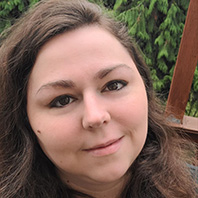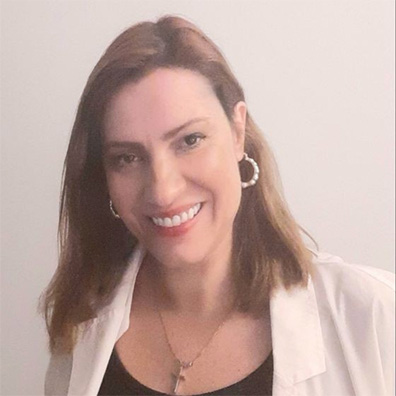The Importance of Nutrition & Hydration at the End-of-Life

Proper nutrition and hydration can look different for each person, depending on underlying conditions. As advanced illnesses progress, dietary requirements and recommendations may evolve. This guide addresses essential topics, including how to recognize when your loved one may need nutrition and hydration support and how to provide it.
Key Takeaways
- Both nutrition and hydration keep the body working optimally.
- Some people may require advanced nutrition and hydration support as they age or approach the end of their lives.
- Medical professionals can provide support and guidance if your loved one is malnourished or dehydrated.
Why Are Nutrition and Hydration Especially Essential to Those With an Advanced Illness?
Good nutrition and hydration are vital for maintaining the health and well-being of elderly individuals and often prove to be key aspects of advanced illness care. Maintaining proper nutrition provides several benefits, including strengthening the immune system, supporting bodily functions, and improving energy levels, which can enhance quality of life[1].
The Risks of Low Nutrition and Hydration in Older Adults With an Illness
Malnutrition and dehydration can exacerbate illness symptoms. In seniors, for example, malnutrition may worsen mobility, weaken the immune system, and harm organs[2].
Seniors are at an increased risk of dehydration because they have less water in their bodies than when they were younger. They may not feel as thirsty. However, water is vital for virtually every bodily function. When dehydrated, seniors may experience fatigue, weakness, dizziness, headaches, muscle cramps, or heat intolerance[3].
It can also lead to the onset of, or worsening of, chronic pain[11]. Given the potentially severe consequences of ignoring proper nutrition and hydration, it’s just as important to monitor these things in the later stages of life as it is in the formative ones.
Are There Specific Dietary Considerations for Certain Illnesses?
Some diagnoses require specific dietary adjustments. For example, someone with heart disease may need to minimize consumption of salt and added sugars[4]. A person with chronic kidney disease may need to limit fluids, consume a low-protein diet, and limit salt and other electrolytes[5].
Consult with your doctor about dietary concerns specific to your or your loved one’s condition.
Who Is a Good Candidate for Advanced Nutrition and Hydration Support?
Certain illnesses and conditions may require specialized nutrition and hydration support during the end-of-life period. These include:
- Cancer
- Heart disease
- Chronic obstructive pulmonary disease (COPD)
- Advanced dementia
- Neurodegenerative diseases, such as ALS or Parkinson’s disease
What Factors May Decrease a Loved One’s Appetite and Fluid Intake?
Your loved one’s appetite and fluid intake may fluctuate during their end-of-life period. Common reasons for a decrease in intake include:
- Pain
- Nausea
- Chemotherapy
- Side effects of medication
- The aging process, which affects the body’s ability to absorb and utilize nutrients from food and drinks optimally
Loss of appetite and thirst can be due to underlying depression, especially when accompanied by other signs such as low mood, changes in sleep patterns, lack of energy, loss of motivation or interest in previously enjoyed activities, and unexplained aches and pains. Discuss these symptoms with a doctor for proper assessment and treatment.
Brindusa Vanta, MD
Signs You or a Loved One May Need Nutrition and Hydration Support
Some signs may indicate that your loved one requires additional nutrition and hydration support.
Signs of Nutritional Deficiencies
- Fatigue, tiredness, or weakness
- Bone pain
- Pale skin
- High blood pressure
- Kidney stones
- Shortness of breath
- Cold extremities
- Muscle cramps
- Dry skin
- Brittle nails[6]
Signs of Dehydration
- Infrequent urination
- Dark urine
- Weakness
- Dizziness
- Confusion
- Fatigue[7]
While the signs above can indicate nutritional deficiencies or dehydration, it is important to discuss these symptoms with a doctor, as they may be due to an underlying medical condition requiring further investigation and assessment.
Brindusa Vanta, MD
What Professional Resources Are Available to Help With End-of-Life Nutrition?
Several professionals can assist with end-of-life nutrition for your loved one by helping maintain patient comfort and health. These include:
- Dietitians
- Nutritionists
- Palliative care specialists
- Hospice specialists
- Speech-language pathologists
What Can You Expect From Specialist Care for Nutrition and Hydration?
Specialists offer strategies to support your loved one’s health. These can include creating diet plans or recommending supplementation as necessary. Ultimately, though, these strategies will depend on both the professional and the needs of the person in question. Identify what options are available online or in your area in advance of dehydration or malnutrition taking hold.
Common FAQs About End-of-Life Nutrition and Hydration
Malnutrition can present in several ways, but the most common indicator is a drastic change in your loved one’s weight. They may rapidly lose or gain weight at a concerning rate. Either extreme is a sign that they should be evaluated by their physician. Blood tests may be necessary to identify certain nutritional deficiencies[8].
Other signs might indicate they’re struggling to get the necessary dietary intake. Has their diet become more restricted than normal? Do they seem to gag or struggle with certain textures?
Regular water consumption keeps you hydrated. However, as you age, your body tends to stop feeling thirsty as often, potentially causing dehydration. Plus, seniors may take medications that increase the risk of dehydration.
If you’re worried about your loved one’s water intake, these simple strategies can help:
– Encourage them to eat foods with high water content, such as watermelon, lettuce, cucumbers, or soup.
– Keep a full bottle of water within their reach at all times.
– Reduce or eliminate alcohol consumption.
– Make drinking water part of a schedule[9].
If your loved one refuses to eat or drink, contact their physician immediately. It may be due to an underlying condition, such as dementia, depression, or Parkinson’s disease. Other medical conditions, as well as social and environmental factors, can cause a senior to refuse food and water[10].
Nutrition and Hydration Are Essential for Optimal Health
Your loved one’s body needs optimal nutrition and hydration, especially if they have a serious condition. During the end-of-life care period, they may start consuming less. Consulting with professionals can help you understand the underlying reasons for malnutrition and dehydration and provide strategies to address them, improving your loved one’s quality of life and comfort.

Written by Serena Tanner
Serena Tanner attended the University of Washington, where she earned a degree in philosophy after many detours delving into human rights, law, psychology, and social work. Health and holistic wellness topics continue to hold a special place in her heart. When she's not reading or writing, she can be found exploring the Pacific Northwest with her two children and dogs.

Edited by Ani Lahiri
Anitra Lahiri earned her bachelor's degree in English from NYU and holds certifications in Yin Yoga, Prenatal Yoga, Reiki I and II, Natural Health, and SMART Recovery Facilitator Training. She is also completing her 500-hour hatha yoga teacher training in December 2024. By leading addiction recovery meetings, teaching yoga, and writing about wellness, Anitra helps people all over the world bounce back from addiction, incarceration, or traumatic life events. Her passion is encouraging people to tap into their inner wisdom. https://anitralahiri.com/

Subject Matter Expert Brindusa Vanta, MD
Dr. Brindusa Vanta is a healthcare professional, researcher, and medical subject matter expert . She earned her MD degree from "Iuliu Hatieganu" University of Medicine, Romania. She has a special interest in mental health and has collaborated with psychologists and other mental health practitioners on various research projects focused on therapies to manage depression, age-related cognitive decline, trauma and stressor- related conditions.
Sources
Cleveland Clinic. (n.d.). How to age better by eating more healthfully. Sourced from https://health.clevelandclinic.org/how-to-age-better-by-eating-more-healthfully
National Council on Aging. (n.d.). 10 ways malnutrition can impact your health and 6 steps to prevent it. Sourced from https://www.ncoa.org/article/10-ways-malnutrition-can-impact-your-health-and-6-steps-to-prevent-it
Cleveland Clinic. (n.d.). Drink up: Dehydration is an often-overlooked health risk for seniors. Sourced from https://health.clevelandclinic.org/drink-up-dehydration-is-an-often-overlooked-health-risk-for-seniors
American Heart Association. (n.d.). AHA diet and lifestyle recommendations. Sourced from https://www.heart.org/en/healthy-living/healthy-eating/eat-smart/nutrition-basics/aha-diet-and-lifestyle-recommendations
MedlinePlus. (n.d.). Nutrition and aging. Sourced from https://medlineplus.gov/ency/article/002442.htm
AARP. (2023). Nutrient and vitamin deficiency symptoms. Sourced from https://www.aarp.org/health/conditions-treatments/info-2023/nutrient-vitamin-deficiency-symptoms.html
Mayo Clinic. (n.d.). Dehydration: Symptoms and causes. Sourced from https://www.mayoclinic.org/diseases-conditions/dehydration/symptoms-causes/syc-20354086
AARP. (2018). How to prevent malnutrition. Sourced from https://www.aarp.org/caregiving/health/info-2018/prevent-malnutrition.html
National Council on Aging. (n.d.). How to stay hydrated for better health. Sourced from https://www.ncoa.org/article/how-to-stay-hydrated-for-better-health
Hartford Institute for Geriatric Nursing. (n.d.). Refusing to eat or drink. Sourced from https://hign.org/consultgeri/resources/symptoms/refusing-eat-drink
Pauly, M. (2022). The relationship between nutritional status and depression in the elderly: A review of literature. Journal of Geriatric Mental Health, 9(2), 125-132. https://doi.org/10.1007/s12603-022-1910-7. Sourced from https://www.ncbi.nlm.nih.gov/pmc/articles/PMC9571356